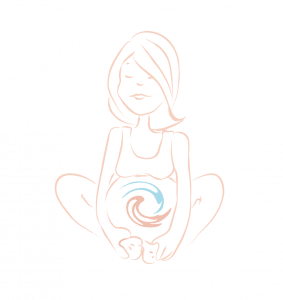Three Top Tips for Your First Trimester from The Birthing
This is an expert article from our expert coach Tanya Bunting Tanya Bunting is a birthing coach based in Bournemouth. Today Tanya shares her three top tips for your first trimstester. If you would like to to learn NLP and Hypnosis for a relaxing pregnancy and a comfortable birth visit her website

Three Top Tips for Your First Trimester
I’ve lost count of the number of times that my pregnant colleagues or clients have noted how tired or sick they are feeling in the first trimester and each time I hear them; I remember it well!
If you’re currently pregnant, I’m sure you remember that moment when it suddenly dawned on you that you might be pregnant. Maybe you missed your period or maybe, like me, you noticed a few tell tale signs that got you thinking.
Morning Sickness in the first trimester
Almost 30 years later, I clearly remember an uneasy tummy on route to college. It wasn’t the sort of tummy upset that turns you off your food, in fact it lured me into eating a British Rail Breakfast from the buffet car. After a few days, the nausea hit before I left the house so having decided that I must be ill, I phoned in sick and skipped a day from teacher training college. I was dozing in my bed when I suddenly realised it was morning sickness. With that, I was up and out, running to the chemist at top speed with a full bladder and returning home to confirm a positive pregnancy test within the hour. Lucky for me, the nausea subsided after the first trimester; unlike my second pregnancy when it continued until my daughter was born and required me to leave my classroom on a regular basis. If only I knew then what I know now…
Richard Bandler, Co-Creator of Neuro Linguistic Programming [NLP], teaches his students and clients to recognise their feelings. He notes that e-motion is energy moving; and, that the Vagus nerve that wanders from the brain into the organs in the neck, chest and abdomen has so many nerve endings that we are able to sense the direction in which the feelings are moving. So much so that you can recognise the direction and shape of the feeling. To combat unwanted feelings in NLP, we teach people what they can do to instantly reduce or stop the feeling. So, the next time you feel nauseas you can:
Top Tip 1: Dissolve Discomfort & Reverse the Feeling of Morning Sickness
- Notice the feeling inside your body. Where does it start? How does it move? Which direction does it spin? [Clockwise? Anti-clockwise? Forwards? Backwards?] To realise this easily, spin your hand in the four directions and sense which spin “fits” best with what you’re feeling inside.
- Slow the feeling down. Notice how you can make it STOP!
- Now, spin it the opposite way and notice that discomfort dissolve.
The term Morning Sickness is misleading as it can occur at any time of day or night! It also affects people differently. Whilst some Mums can just get on, others have more severe symptoms and may even need to avoid certain foods or smells that exacerbate the symptoms. If you have noticed certain trigger foods, you can use the next NLP strategy to switch your thoughts to something more comfortable.
I guess that if you remember a food or activity that makes you nauseas now, there will be a picture, sound or smell associated with it. If you dwell on it, the feeling gets worse, does it not? So, not only can you slow down, stop and reverse the spin; you can also swop the picture, sound or smell to something more palatable using another NLP technique called the swish pattern.
Top Tip 2: Swish Pattern: Switch a negative to a positive in 5 Easy Steps
- Notice the picture that forms in your mind when you feel nauseas [e.g. roller coaster or trigger food]
- Remember a picture that makes you feel comfortable [e.g. a calm place or a favourite meal]
- Bring up the “Nauseas” picture in your mind and insert the “Comfortable picture” in the bottom left hand corner.
- Count to three and then gently swish the pictures quickly so that the “Nausea” picture shrinks down, and the “Comfortable” picture appears as life size in your mind. Do this 4-5 times. As you feel more and more comfortable; swish [or swop] quickly so that you rewire your neurology to focus on the good picture. Turn the colours up, notice any sounds or pleasant smells and notice how much better you feel.
- Now, notice the good feeling associate with the “comfortable” picture; gauge which way that feeling is spinning and make it spin faster and faster, noticing that any unwanted sensations can be replaced with a renewed feeling of comfort.
It’s also important to get plenty of rest because tiredness can make nausea worse.
The example above has been written to support you to swish from nausea to comfort. You can follow the same steps to swish [or switch] form any negative thought or picture in your mind to a positive. One of my Mums in her third trimester recently arrived late for a Painless Childbirth Session because she was tired and emotional and focusing on a negative aspect relating to her workload prior to going on maternity leave. When I spoke with her, she actually wanted to focus on the final preparations for welcoming her new baby into our world. So, we combined the two strategies outlined above by swishing the picture, stepping into the new picture in her mind, noticing how the feeling changed and then doubling the good feelings again and again.
Tiredness in the first trimester
It’s common to feel tired or even exhausted in pregnancy, especially in the first 12 weeks when hormonal changes can affect your energy levels and emotions. I remember falling asleep in my dinner and waking up when my husband attempted to take the plate away!
If you want to pace yourself, you can be mindful, Mumma. If you don’t already know, 20 minutes in trance is equivalent to 3-4 hours sleep. So, mindfulness, meditation or self-hypnosis will help you to re-energise throughout the day.
Top-Tip 3: Be Mindful, Mumma
Mindfulness, Hypnosis and Meditation all work by going inside, slowing down your breathing rate and ultimately slowing down your brain waves.
The main difference between hypnosis and the other two is the mental processing that takes place during hypnosis as a result of the use of positive or direct suggestions. In a nutshell, when you’re in this altered state, your unconscious is much more susceptible to suggestions that you or a Clinical Hypnotherapist can make to support you to achieve what you want, instead of anything else. In your first trimester, you can use self-hypnosis to:
- Improve your sleep pattern
- Relax
- Prepare for being a Mum
- Maintain good energy levels
- Induce relaxation and alleviate anxiety
You can also work with a qualified Clinical Hypnotherapist to:
- Further manage morning sickness
- Learn self-hypnosis in preparation
- Establish better habits [if you’re giving up smoking and/or alcohol]
If you want to be more mindful, you can:
- Listen to a guided visualisation.
- Learn self-hypnosis.
If you want to learn NLP and Hypnosis for a relaxing pregnancy and a comfortable, you may want to get started as soon as possible, and preferably no later than 30 weeks gestation.
If you want to access my service, please visit my website at: tanyabuntingcoaching.org
Or, contact me directly on 07985415650 to share your hopes and dreams for your baby’s welcome to our world and I will share how I can help.
Warmest wishes
Tanya x
Carla is the founder of MyBump2Baby. Carla has a huge passion for linking together small businesses and growing families. Carla’s humorous, non-filtered honesty has won the hearts of thousands of parents throughout the UK.
She has previously written for the Metro and made appearances on BBC News, BBC 5 live, LBC etc. Carla is a finalist for Blogger of the Year award with Simply Ladies inc. Carla is also the host of the popular Fifty Shades of Motherhood podcast and The MyBump2Baby Expert podcast.


















Leave a Reply
Want to join the discussion?Feel free to contribute!